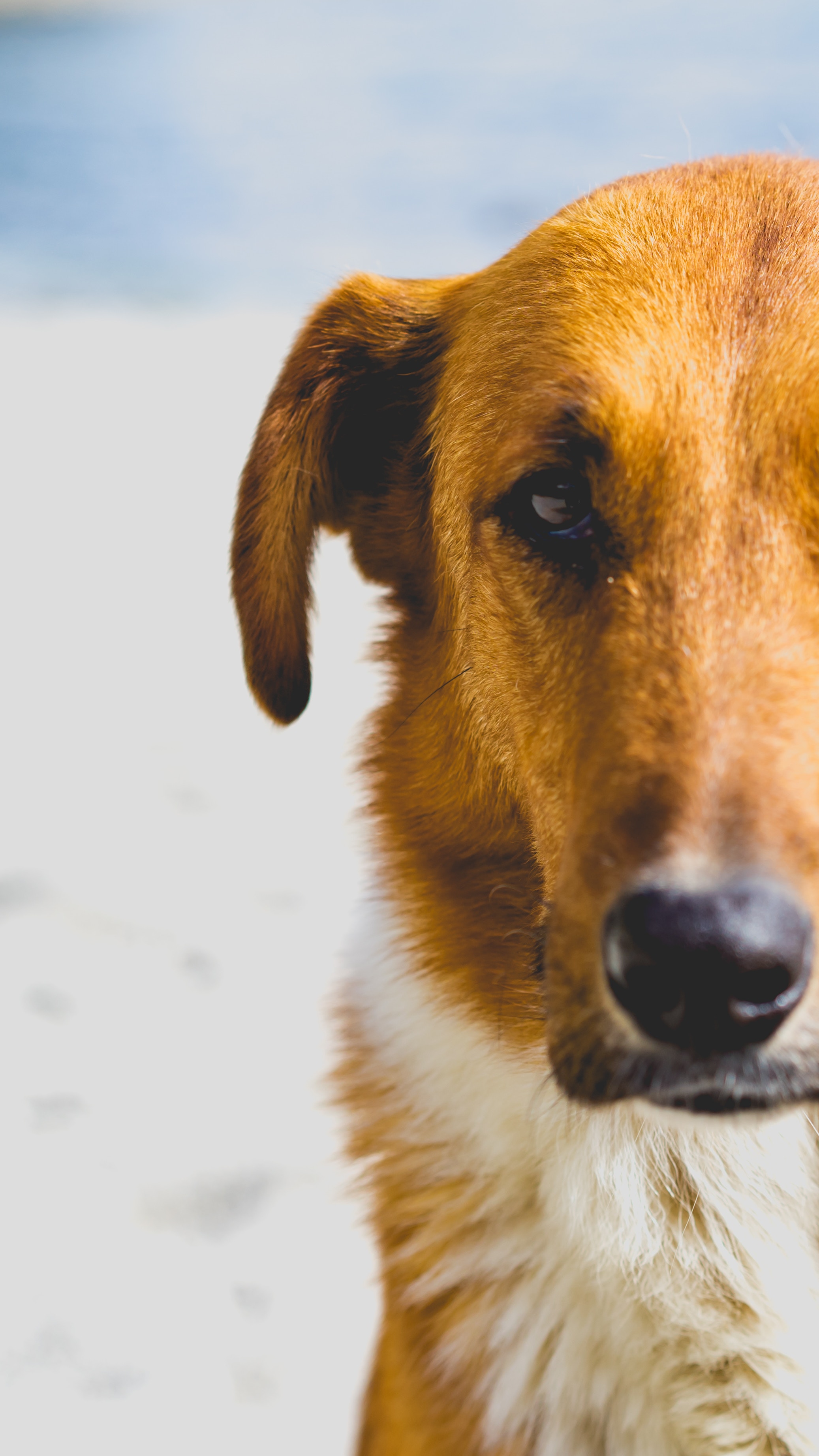There's an old English proverb that says the eyes are the window to the soul. Now it appears that scientists may have confirmed this. According to research in humans, patterns in the iris, or the colored portion of the eye, can give clues to your personality and reveal certain traits like warmth, trust, or even impulsiveness.
While this may be true for your pet, too, his or her eyes tell far more… Your pet uses their eyes to communicate with you. They tell you if their ready for a walk. Or wants to play. And that they are happy.
I don't think many pet owners realize it, but your pet's eyes can provide valuable clues about his or her health because they're connected to both the vascular and neurological systems.
Do you know the characteristics of healthy eyes?
The eyes should be clear and bright, and the area around the eyeball, the sclera, white. The pupils should be equal in size and there shouldn't be tearing, discharge or any crust in the corners of his eyes.
If there is cloudiness, change in eye color or a yellow-tinged sclera, unequal pupil sizes, or a visible third eyelid, check with your vet.
Gently roll down your pet's lower eyelid with your thumb until you can see the lining. It should be pink, not red or white.
If you notice persistent runny eyes and discharge, please see your veterinarian. Your pet may have an infection.
Watch your pet's behavior. Does he frequently paw or rub his eyes? Does he frequently squint?
As much as dogs love feeling the wind in their face, when you drive with your pet, make sure his head stays inside the car. The wind can dry your dog's eyes or cause potential irritation, infection, or injury if a bug or debris hits his eye.
Know your pet's breed's reputation for eye health. Are they a breed that might need a little more attention to maintain optimal eye health?
What Happens to Your Pet's Eyes with Age?
Just like with your eyes, changes occur in your pet's eyes that are a normal part of the aging process.
One change that many dog owners notice in their pet – and not just in older pets – is a clouding of the lens. Often seen in dogs over the age of 6, nuclear sclerosis usually develops in both eyes, and can be alarming to pet owners if they don't know it's a normal and painless process of aging.
Nuclear sclerosis comes on gradually, and even though your pet may not see as well up close – much like a middle aged person needing reading glasses – pets adapt well to the minor changes in vision that occur.
Another normal aging change happens in your pet's retina where the cell layers used for night vision become thinner. If your dog becomes hesitant to go outside at night, this may be why. Extra lighting can help ease his uncertainty.
Some dogs become more light-sensitive as they age. The muscle in the iris that constricts the pupil weakens with age, making bright light less tolerable. This too, is a normal, slowly progressing change that shouldn't create a problem for your pet.
As always, any change in your pet's eyes that appears suddenly or anything that you find concerning is a good reason to see your veterinarian.
Now that we know what's normal and what's not, let's explore some ways you can help your pet maintain healthy normal vision and eye function.
How Antioxidants (and Radical Dog) Can Potentially Help Support Eye Health
To understand the potential power of antioxidants in your pet's body, consider a bicycle that's left outside in the rain… The unprotected metal reacts with oxygen and slowly rusts – or "oxidizes."
It's not much different with your pet's body – or your own. Free radicals created by things like stress, metabolic functions, and poor diet can attack cells and tissues, including eye tissues, and contribute to signs of premature aging.
Eye tissues are especially sensitive to this "oxidative stress" from free radical damage. But oxidative stress can affect your pet's immune system, too.
Antioxidants help neutralize oxidizing free radicals. Antioxidants reduce oxidative stress in your pet's body.
Antioxidants are important for the health of your pet's eyes. And if your pet is a dog with a shorter muzzle and protruding eyes, he or she may benefit from even more dietary antioxidants.
Plus, they're especially useful for supporting your pet's eye health as he or she ages.
An article by Dr Becker discussing eye support for pets, for the full article Click here:


